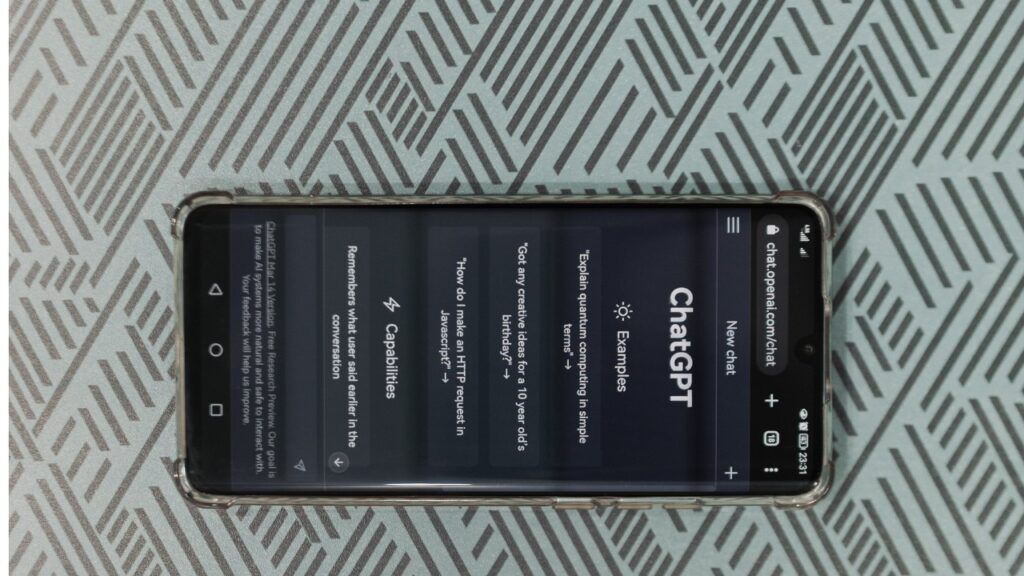
Here are a few questions and answers about the limitations and ethical considerations of using ChatGPT.
If you’re new to ChatGPT and would like to learn more about how to use it as an author, click here.
Is there an input limit for ChatGPT prompts?
There is no specific character limit for prompts when using ChatGPT. This means your question or request can be as long as it needs to be. However, it is generally recommended to keep prompts concise and to the point, as longer prompts may result in longer and potentially less coherent responses.
Is there an output limit for ChatGPT prompts?
There is no specific character limit for the output of ChatGPT. However, the length of the output generated by the model will depend on the complexity of the prompt, and the specific parameters and settings used when running the model.
You may want to consider setting a maximum length for the generated responses in order to ensure that the output is manageable and easily readable (for example, “Write a 500-word article about X”).
If you do need to generate longer responses using ChatGPT, one option you could consider is to break up the prompt into smaller chunks and feed them to the model one at a time. This can help to avoid overloading the model with too much information at once.
And if you get a response from ChatGPT that is truncated or shorter than you expected, simply type “Continue” in your next prompt, and the model will continue to add on to the previous answer.
Will ChatGPT replace authors?
It is unlikely that chatbots or language models like ChatGPT will completely replace writers. While chatbots and language models have the ability to generate text based on certain prompts or input, they do not have the creativity, nuance, or understanding of context and meaning that a human writer does.
Is the data that ChatGPT provides accurate?
As with any machine learning model, the accuracy of ChatGPT’s responses will depend on the quality and relevance of the data it has been trained on. While ChatGPT has been trained on a large dataset of human conversations, it may still make errors or produce responses that are not entirely accurate. It is always a good idea to fact-check and verify the information provided by ChatGPT before relying on it for important decisions.
Is the data that ChatGPT provides private?
The data that ChatGPT provides is not private in the sense that it is not protected or restricted from being accessed by others. The responses are not intended to be treated as private or confidential. It is always a good idea to be mindful of the information that you provide to ChatGPT and to consider whether it could be used to identify you or reveal sensitive information. For more information about how ChatGPT handles data, check out the following links on the OpenAI website: Privacy Policy (https://openai.com/privacy/) and Terms of Use (https://openai.com/terms/).
Is the data that ChatGPT provides recent?
ChatGPT’s training data was compiled up until 2021, so the information it provides may not be entirely up-to-date. ChatGPT is not connected to the internet, and it does not have the ability to access new information beyond what it was trained on. It’s a good idea to check the accuracy and relevance of the information provided by ChatGPT, especially if you are using it for tasks that require current or up-to-date information.
Are the responses from ChatGPT biased?
As with any machine learning model, ChatGPT’s responses may be influenced by the biases present in its training data. These biases can take many forms, including racial, gender, and cultural biases. It is important to be aware of these biases and to consider their potential impact when using ChatGPT.
Can anyone use the answers from ChatGPT and claim them as their own?
It is generally not acceptable to use the output of a language model like ChatGPT and claim it as your own original work. This would be considered plagiarism, which is the act of using someone else’s work or ideas without proper attribution. Plagiarism is generally considered to be a serious ethical violation in academic and professional settings and can have serious consequences, including loss of reputation and legal consequences.
If you are using the output of a language model like ChatGPT as a source of inspiration or as a starting point for your own work, it is important to properly attribute the source. This could involve citing the language model in a bibliography or footnotes or including a disclaimer stating that the work includes elements generated by the language model.
If you’d like to learn more, check out the bestselling “ChatGPT for Nonfiction Authors” book on Amazon